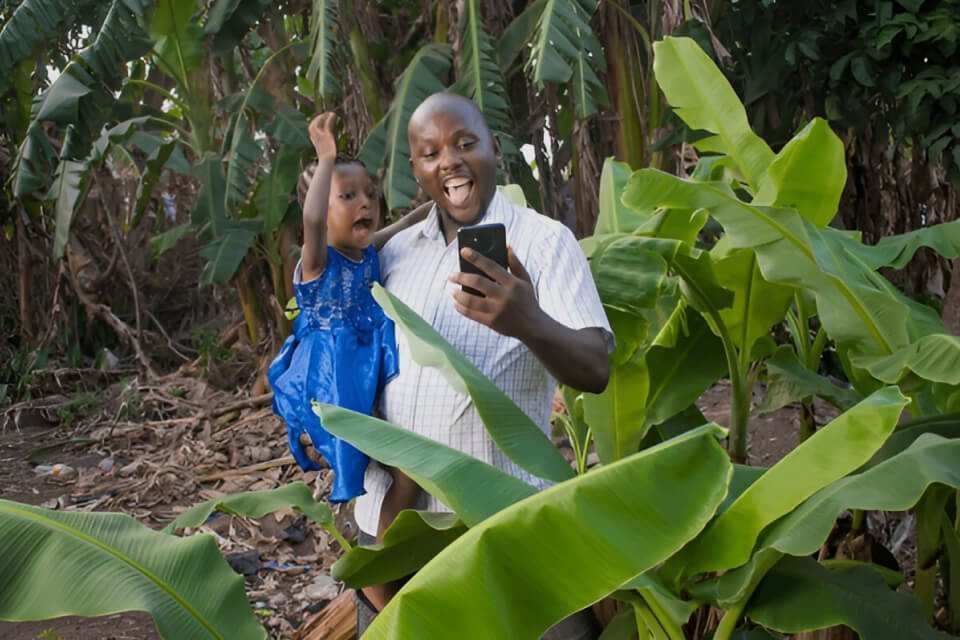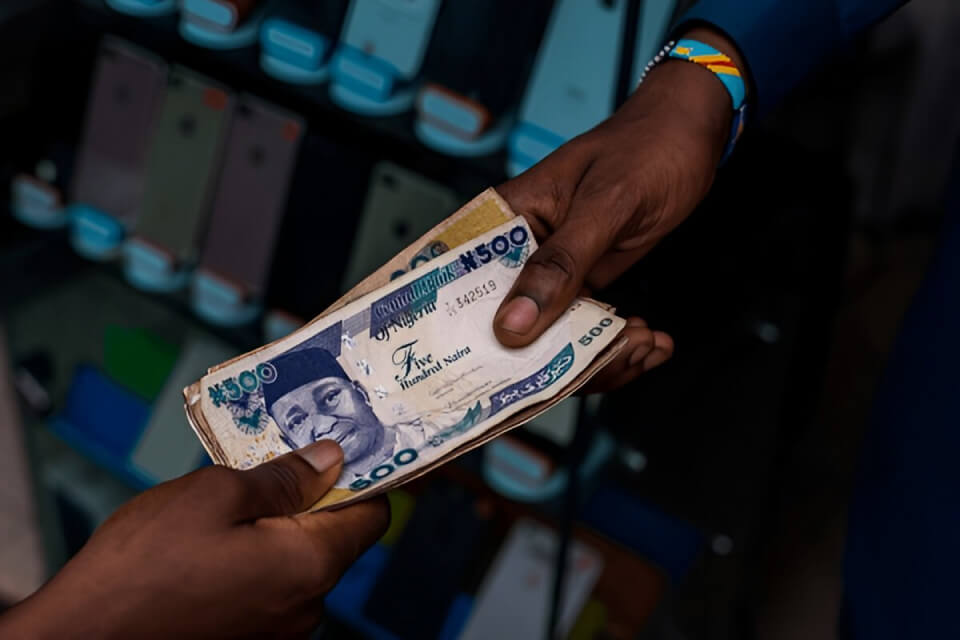Introduction
The impact of digital payments on African rural economies is growing every single day. More people in small towns and farming communities now use phones to send and receive money. This change is helping these places grow and become stronger.
In this article, we will explain how digital payments work, why rural areas are important, and how this affects Africa’s future.
Overview of Digital Payment Systems in Africa
Digital payments make it easy to move money using mobile phones, digital wallets, or cards. Instead of carrying cash, people can pay for goods, save money, and even get paid—all from their phones. This is very helpful, especially for those who don’t have bank accounts.
Today, mobile money systems like M-PESA are very popular in many rural areas. In recent years, more people have started using them because they are quick and easy. Many people can now buy things, pay school fees, or send money to family with just a few taps.
Still, there are some problems. For example, poor internet and power issues can cause transactions to fail. When this happens often, people lose trust. But the good news is that companies and governments are working to fix these issues. Also, banks are starting to work more closely with digital payment systems, which is helping to make everything smoother.
The Role of Rural Economies in National Development
Rural areas are very important to Africa’s success. This is where most farmers live. These farmers grow the food we eat and run small businesses that keep communities going. That’s why helping these rural areas grow is key to national development.
Digital payments make life easier for farmers and shop owners. They help them buy seeds, tools, or farm equipment without needing to travel far. They can also sell their products and get paid without delay. This helps them earn more and grow their businesses faster.
In addition, digital payments help farmers connect to big markets. They no longer need to sell only in their local area. They can now reach buyers in towns and cities. This is a big win for African agribusiness and job creation.
Objective and Structure of the Discussion
This article looks at the big picture. It explains the impact of digital payments on African rural economies and how these tools are changing lives. It also shows the role of digital payments in African e-commerce growth.
More people are shopping online, and digital payments help them do that. Also, when banks and digital systems work together, it becomes easier to send and receive money, even in remote villages. These changes mean more people can take part in the digital economy.
Adoption Rates of Digital Payments in Rural Areas
The impact of digital payments on African rural economies is growing every day. More and more people in small towns and villages now use mobile money and digital wallets. These tools help them send money, pay for things, and even use financial services without needing a bank. But adoption is not the same everywhere. It depends on where you live and what tools are available.
Growth Trends in Mobile Money and Digital Wallets
Over the last ten years, mobile money has become a big deal in Africa. Services like M-Pesa in Kenya made it easy for people to use money on their phones. In Kenya, almost three out of four people now use mobile money. That’s huge!
In fact, across the whole continent, people used mobile money for over 700 billion dollars worth of transactions in just one year. This growth is because more people own smartphones and have better access to the internet. Also, digital payments make life easier, especially for people in rural areas who don’t have banks nearby.
Regional Variations in Adoption across African Countries
Even though mobile money is growing, not every region is moving at the same speed. Countries like Kenya, Nigeria, and Ghana are ahead. They have strong mobile networks and government support that helps people use digital services.
In Southern Africa, digital payments are growing more slowly, but still moving forward. North African countries are further behind, mostly because of fewer resources and different economic systems. In Central Africa, things are moving slower because the internet is not always available, and people earn less money, so they don’t use digital tools as often.
Factors Driving or Slowing Adoption
There are many reasons why people start using digital payments.
First, if they have access to phones and the internet, it becomes easier. Also, when governments support cashless payments, more people feel confident trying them. Telecom companies and fintechs are also working hard to bring these services to rural places.
But, there are still challenges. In many villages, there is no steady power supply. The internet can also be slow or too expensive. Some people don’t trust digital tools or don’t know how to use them well. And in some cases, the fees are too high, which makes people go back to cash.
Role of Telecom Providers and Fintech Companies
Telecom and fintech companies are very important in the impact of digital payments on African rural economies. They provide the mobile apps, payment systems, and customer support needed to keep things running. Big names like M-Pesa, MTN Mobile Money, and Airtel Money are helping people manage their money more easily.
They also help connect digital payments with banks. This means people can save money, get loans, and even grow their small businesses. In fact, digital payments are also making it easier to buy and sell things online, which supports the role of digital payments in African e-commerce growth. Farmers are using these tools to get paid faster too, showing the impact of digital payments on African agribusinesses.

Economic Benefits for Rural Communities
Digital payment systems are bringing financial services to many who never had access before. This is not just about making payments easier. It is also helping rural areas grow, build wealth, and improve lives. Let’s explore how digital payments are making a real difference.
Increased Financial Inclusion and Savings
First of all, digital payments help more people use money in a safe and easy way. In many rural parts of Africa, banks are far away or hard to reach. Because of this, many people don’t use banks at all.
Now, thanks to mobile money and digital wallets, people can save, send, and receive money using their phones. This means farmers and families don’t need to travel long distances just to handle money. It also helps them build better savings habits and join the formal economy.
This is a big step toward financial inclusion. More people being part of the financial system means more chances to grow businesses and create jobs in rural areas.
Faster and Safer Transactions for Farmers and Traders
Farmers and small traders benefit a lot from digital payments. One reason is that payments are now faster and safer. Before, people had to carry cash, which was risky. But now, they can send and receive money right from their phones.
This makes it easier to do business. Farmers can get paid for their crops quickly. They can also pay for seeds, tools, and other supplies without delays. Since everything is done through digital platforms, it also helps build trust between buyers and sellers.
Many banks are now working to integrate digital payments with African banking systems, making it easier for farmers to get access to credit, insurance, and other helpful tools. This improves the impact of digital payments on African agribusinesses, helping them grow and stay strong.
Boost in Local Business and Market Access
Digital payments are also helping rural businesses grow. Shop owners, market sellers, and local creators can now accept payments from anyone, not just nearby customers.
With mobile money, people in villages can sell to buyers in big cities or even abroad. This gives them more chances to earn money. It also means rural businesses can grow and hire more people.
This is one reason why the role of digital payments in African e-commerce growth is so important. More small businesses are joining online markets. They are finding new customers, getting better prices, and growing faster than before.
Empowerment of Women and Youth through Digital Finance
Another powerful benefit of digital payments is how they support women and young people. In the past, many of them had little control over their own money. Now, with digital wallets, they can earn and save their own income.
This gives women more freedom and helps them support their families. Young people can also start businesses and manage money on their own. Digital payments are easier to use and cheaper than other banking services.
More groups are also offering training and education. This helps women and youth learn how to use digital tools and stay safe online. As a result, they are playing a bigger part in the rural economy, making villages stronger and more equal.
Challenges Faced by Rural Areas
There are real challenges that slow down this progress of digital payments on African rural economies. These issues make it harder for people in rural areas to use, trust, and benefit from digital payments. Let’s take a closer look at the main problems holding things back.
Poor Internet and Mobile Network Infrastructure
First, many rural communities do not have strong internet or mobile network connections. In fact, some areas have no signal at all. This makes it hard to use digital payment apps or services. Even when there is some network, it is often too slow or unstable. As a result, transactions can fail or take too long.
Because of this, it becomes difficult to integrate digital payments with African banking systems. Also, African e-commerce growth suffers when people cannot pay online quickly and safely. Even though governments and private companies are trying to fix this, the improvement is still slow in many places.
Low Digital Literacy Levels
Next, many people in rural areas don’t know how to use smartphones, apps, or mobile money. This is called low digital literacy. Without this knowledge, it becomes hard for them to use digital payments with confidence.
This is a big issue, especially in farming communities. In these places, the impact of digital payments on African agribusinesses can be huge. But if farmers do not know how to send or receive money digitally, they miss out. To solve this, we need more training and learning programs. These should teach people how to use mobile money and other digital tools safely and wisely.
Trust Issues and Fear of Fraud
Another problem is trust. Many people in rural areas still do not trust digital payments. They are afraid of scams, fraud, or losing their money. This fear is common in places where people have not used banks or online payments before.
For digital payments to grow, users must feel safe. To build this trust, service providers need to be open, clear, and reliable. They should also help users feel supported if something goes wrong. Without trust, the future of digital payments in Africa may move slowly, especially in areas where people are more at risk.
Limited Access to Smartphones or Digital Tools
Lastly, many people in rural Africa do not own smartphones or other digital tools. Some still use basic phones, which can only handle simple services. Meanwhile, many mobile apps and payment systems need smartphones to work well.
This makes it hard for people to fully take part in the digital world. When devices are too expensive or hard to find, it becomes a big barrier. To fix this, we need to make smartphones and digital tools more affordable and easier to access. That way, more people can enjoy the benefits of digital payments, including better access to online shopping and business growth.

Strategies for Expanding Digital Payments in Rural Areas
Every day, more farmers, traders, and small business owners are using mobile money and digital wallets. But for this progress to continue, especially in remote areas, we need smart ideas that help people overcome problems like poor network service and low tech knowledge. Let’s explore some simple but powerful ways to grow digital payments in rural Africa.
Government and Private Sector Partnerships
One of the best ways to expand digital payments is by having the government work together with private companies. These partnerships make a big difference.
Governments can create helpful rules and support systems that make it easier for people to use digital money. At the same time, private companies like mobile networks and fintech businesses can create the apps and services people use to send and receive money. For example, when mobile companies and governments worked together in some African countries, many farmers were able to get paid quickly and safely with mobile money.
When both sides work as a team, they can reach more people, even in rural areas. This teamwork gives farmers and traders the chance to use secure and affordable digital payments that fit their everyday lives.
Community-based Digital Literacy Programs
Another major problem in rural areas is that many people don’t fully understand how digital payments work. Some struggle to use mobile phones, keep their PINs safe, or trust digital money.
That’s why training programs in local communities are so helpful. These programs teach people in their local language how to use digital wallets, send money, save, and avoid fraud. More importantly, they help people feel more confident and build trust in the system.
As more people in rural communities learn how to use mobile money, it becomes easier for them to join the growing digital world. This is also helping to boost the role of digital payments in African e-commerce growth, making it easier to shop, sell, and trade online.
Investment in Rural Connectivity and Infrastructure
For digital payments to work well, there must be strong mobile networks and internet services. That’s why it’s important for both governments and private businesses to invest in rural areas.
They are building more network towers, improving electricity, and setting up places where people can turn cash into digital money or the other way around. In some countries, systems are already in place that allow people to send money across different mobile networks. This makes life easier for farmers and small traders, even if they use different mobile providers.
Better connections and infrastructure also make it easier to integrate digital payments with African banking systems. This helps more people in rural areas access loans, savings accounts, and even insurance services using just their phones.
Designing Inclusive and User-friendly Platforms
Digital payment platforms must be simple to use. They need to work for everyone, not just people with expensive smartphones.
This means having easy menus, using local languages, and allowing voice commands for people who cannot read well. Also, these platforms must work on small, basic phones. For example, some mobile wallets are made especially for farmers. These allow them to receive payments and get market updates right from their phones.
When platforms are designed to be friendly and inclusive, more people will feel comfortable using them. That’s how the impact of digital payments on African agribusinesses continues to grow.
Frequently Asked Questions (FAQs)
1. What is the impact of digital payments on African rural economies?
Digital payments improve financial inclusion, reduce transaction costs, and accelerate economic activities in rural areas, helping farmers and small businesses grow.
2. How do digital payments support African agribusinesses?
They enable faster, safer payments, improve access to credit, and connect farmers directly to markets, reducing middlemen and increasing profits.
3. What role do digital payments play in African e-commerce growth?
Digital payments make buying and selling easier online, increasing trust and access for rural consumers, thus fueling e-commerce expansion.
4. Are there challenges in adopting digital payments in rural Africa?
Yes, challenges include low smartphone use, limited internet access, and low digital literacy, which slow down adoption in some areas.
5. Can digital payments create new job opportunities in rural areas?
Yes, they promote entrepreneurship and new forms of work like delivery services and online trading, diversifying rural income sources.

Conclusion
The impact of digital payments on African rural economies is profound. By enhancing financial inclusion, these payment systems support African agribusinesses and accelerate e-commerce growth. Additionally, integrating digital payments with African banking systems creates more accessible and efficient financial services. Despite challenges like limited digital literacy and infrastructure, the future looks promising with rising smartphone use and fintech innovations.
As digital payments expand, they will continue to transform rural economies, boosting incomes and creating jobs while strengthening financial resilience. Understanding this impact is key to shaping the future of digital payments in Africa.




2 thoughts on “The Rise of Digital Payments in African Villages: What You Need to Know”
Your writing has a way of making even the most complex topics accessible and engaging. I’m constantly impressed by your ability to distill complicated concepts into easy-to-understand language.
Your article helped me a lot, is there any more related content? Thanks!